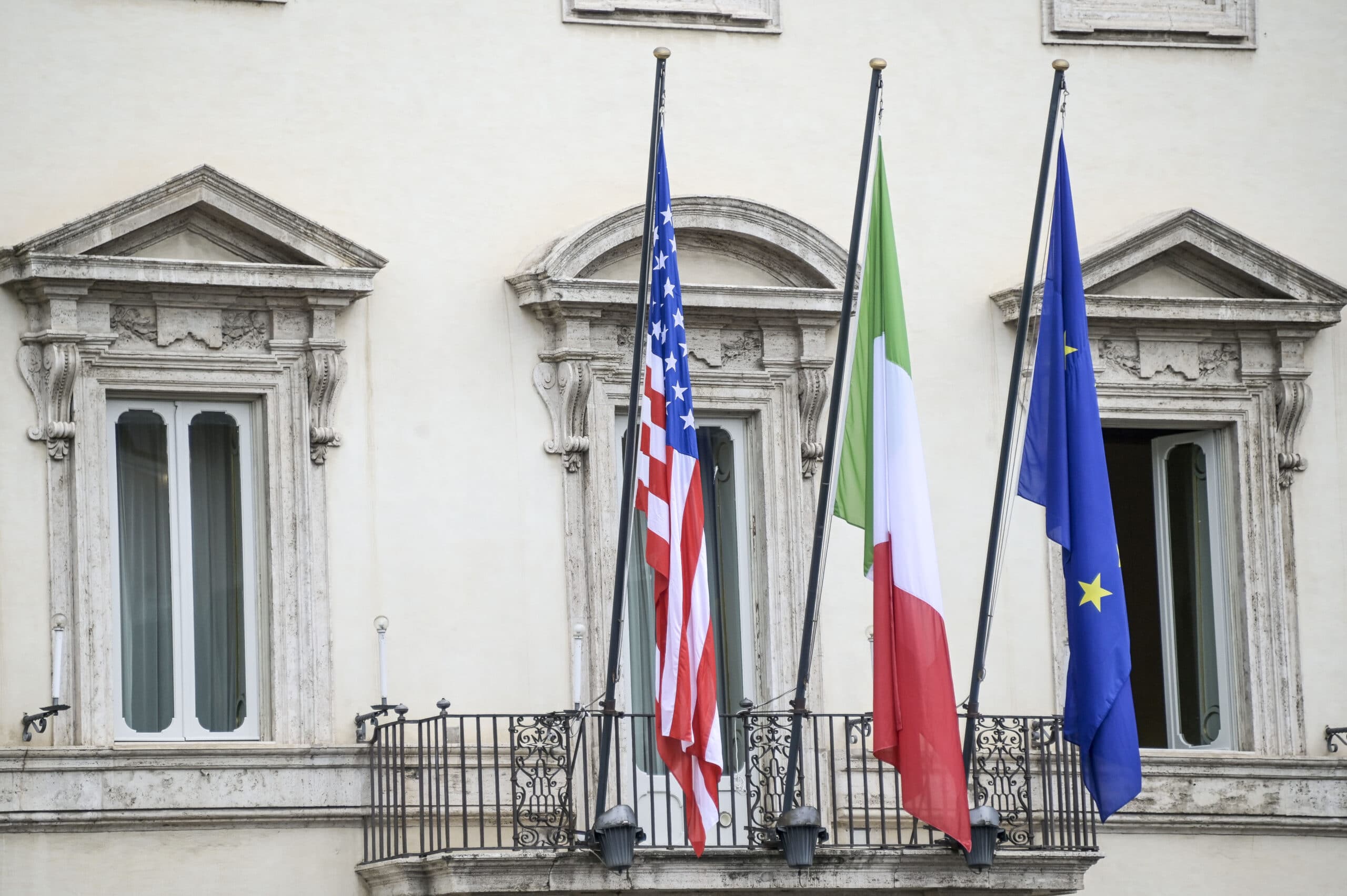A shaky and contradictory foreign policy stance leading to lack of action has taken its toll on Rome’s geopolitical relevance. “America is back,” but Italy might not sit at the table with the grown-ups. And amid a chaotic internal situation, Washington’s point of reference is Italy’s President. Here’s why
As 2020 drew to an end, European leaders held at a virtual table with Chinese President Xi Jinping and sealed a comprehensive EU- China investment deal which has been seven years in the making. The news was not received too warmly in Washington, which will remain Beijing’s main competitor on the world stage under President-elect Joe Biden.
The German Chancellor Angela Merkel was on that call, too: she proved instrumental in pushing it over the line, sealing Germany’s chairmanship of the European Council with a bang, and she reached out to the Americans to reassure them. Alongside her was the French President Emmanuel Macron, meaning that the leaders of the first and second European economies by size were dealing European officials.
But the Italian PM Giuseppe Conte, who is the leader of the third biggest economy in the eurozone, was nowhere to be seen.
This should not come as a surprise, because Italy’s geopolitical importance is not exactly game-changing. Mr Conte’s two governments have been rather inconclusive in their foreign policy approach, says Angelo Panebianco, a political analyst at the University of Bologna.
There are several reasons for this, argues the expert. For instance, Brexit has taken away the UK’s counterbalance to the French-German axis in Europe. And Italy’s lack of grit in the Mediterranean – be it Libya or drilling rights – caused Rome to be essentially kicked out of that complex game, making it harder for the US to count on it.
Thirdly – and perhaps more to the point – the government’s biggest party, the Five Star Movement, never came to terms with its original Euroscepticism and anti-Atlanticism. In short, the 5SM’s lingering suspicions limits its effectiveness in Europe and the Alliance, curbing by extension Italy’s weight on the world stage.
In his paper for the Italian International Affairs Institute (IAI), Dario Cristiani noted that the political fortunes of the 5SM are waning together with their most extreme stances. In 2019, the party was responsible for Italy’s entrance in China’s Belt and Road Initiative (BRI). Today, its alliance with the solidly Atlanticist Democratic Party has blunted their untraditional, anti-establishment edges. Also, the 5SM’s support base has halved.
Still, Washington is aware of the 5SM’s unreliability when it comes to Atlanticism. Mr Cristiani noted how US Secretary of State Mike Pompeo phoned a plethora of officials around the world in the wake of the Soleimani killing, but he avoided Italy, the (allied) country with the most troops in Iraq after the US.
The former US Secretary of Defence then called his Italian homologue, the Democrat Lorenzo Guerini. Meaning that 5SM officials, and even the PM, were essentially bypassed out of distrust. It follows that any upcoming improvement in the Italy-Us relation will have to flow via the American and Italian Democrats.
This, however, is not a certainty. Italian governments are famously short-lived, and the current one is not doing so well. And, as Ian Bremmer and Cliff Kupchan from the Eurasia Group write in their strategic risk analysis, “[coronavirus] restriction fatigue and frustrations with vaccine rollout create fertile ground for populism to once again gain traction. Missteps by parties in power will create openings for populists in Italy.”
If Italy were to vote tomorrow, the right-wing coalition is projected to win a solid majority, and their populist leader Matteo Salvini is known in Washington for his proximity to Russia. Which isn’t to say that there aren’t moderate, Europhile and Atlanticist forces in that area of Italian politics, only that those risk being choked by the right’s lowest instincts.
Ultimately, however, it doesn’t matter whether the isolationist, uncooperative drive comes from the 5SM’s populist impulse or the right’s. What matters is that Italy does not appear to be well-equipped to act as a reliable Atlanticist force. But again, the country’s role could be defined by its future choices.
“The US will measure Italy’s commitment to the alliance against the decision that Rome – and its major political actors – will take vis-à-vis China,” concluded Mr Cristiani; “since the Biden administration is likely to be equally tough or even tougher than [incumbent President] Trump on China, this issue will remain the crucial theme in shaping the bilateral Italy-US relationship under the new Biden administration as well.”
Rome has made inroads with the US in areas such as 5G development, limiting China’s access to its budding next-gen network infrastructure. Most of that drive came from the Dems, but putting ideologies aside, the advantages of sticking to a traditionalist, European and Atlanticist stance are self-evident. Whoever will guide the country will have to come to terms with that.
In this lack of certainties, Washington’s point of reference in Italy remains its steadfast President, Sergio Mattarella. This was made clear when Lewis Eisenberg, the outgoing US ambassador to Italy, went to see him (and no-one else) to bid him, and the country, farewell.
Italian politics is a fluid matter. PMs change, often very quickly, and Washington knows. Which is why the incumbent President, with his seven-years mandate, remains its North Star for all matters Italian.








